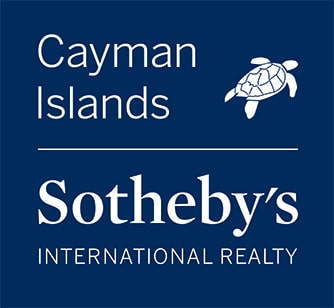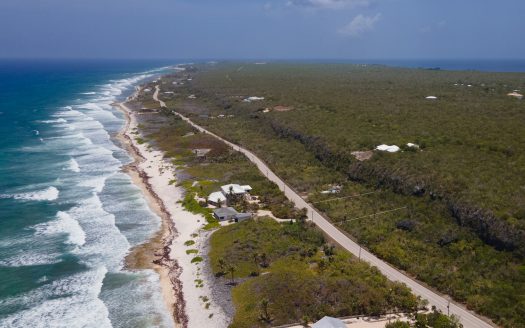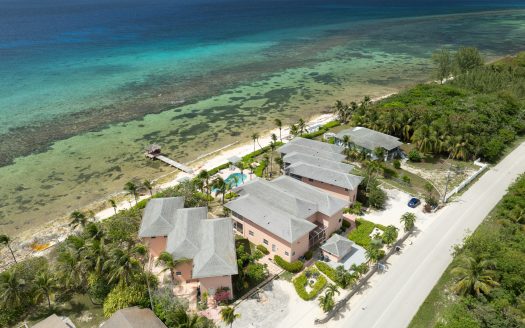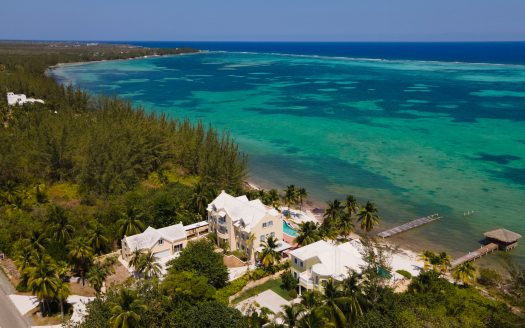The Cayman Registry
MOU: A Milestone in Maritime Safety and Standards
In March 1978, the Amoco Cadiz supertanker ran aground on France’s Portsall Rock, five kilometres from the Brittany coast, around the corner from the English Channel.
Attempts to save the ship were derailed by northwesterly winds and high seas, breaking the ship in two. It dumped its 223,000-tonne cargo of Shell Oil-owned Saudi crude, 1.6 million barrels, and another 4,000 tonnes of bunker fuel, creating a slick 30 km wide and 130 km long, ultimately polluting 320 km of coastline.
Thirty ships laboured for weeks to clean the spill, collecting 100,000 tonnes of material, but recovering fewer than 20,000 tonnes of oil.
Estimates pegged damage to fisheries and tourist amenities at US$250 million. In US courts, Paris presented claims of $2 billion, ultimately winning $120 million from Amoco in 1990.
In the wake of the disaster – the worlds largest at the time – 14 European maritime authorities and the European Commission gathered in Paris in 1982 to sign a “Memorandum of Understanding on Port State Control.” They agreed to inspect at least 25% of foreign-flagged vessels in members’ ports to determine compliance with safety standards, pollution prevention, and crew living and working conditions. Named the “Paris MOU,” the agreement created a centralized database for inspection results and enabled signatories to track ship movements between maritime countries.
Since then, the Paris MOU has been expanded to 27 members and updated to include new safety and marine-environment regulations from the International Maritime Organization.
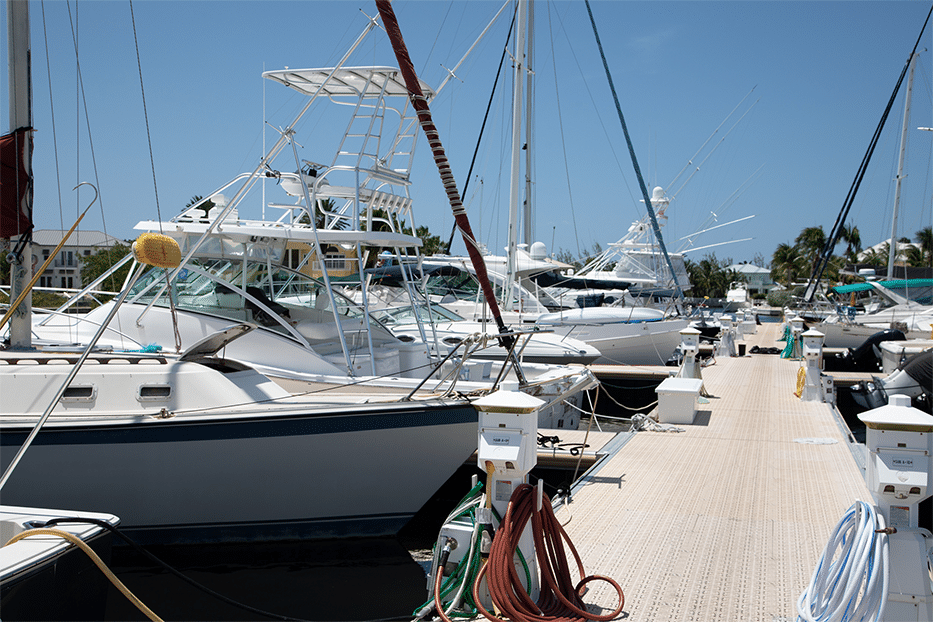
Cayman Islands Yacht Club
As a British Overseas Territory, the Cayman Islands- was among the original Paris MOU members. Working initially through the Cayman Islands Shipping Registry (CISR), then, since its 2005 creation, government’s Maritime Authority of the Cayman Islands.
Today, eight additional MOUs have been created, plus a similar, independent US Coast Guard QUALSHIP 21 agreement, ensuring global compliance with international standards:
- Europe and the North Atlantic (Paris MOU)
- Asia and the Pacific (Tokyo MOU)
- Latin America (Acuerdo de Viña del Mar)
- Caribbean (Caribbean MOU)
- West and Central Africa (Abuja MOU)
- Black Sea Region (Black Sea MOU)
- Mediterranean (Mediterranean MOU)
- Indian Ocean (Indian Ocean MOU);
- Arab States of the Gulf (GCC MoU or Riyadh MoU).
Either independently or through other MOUs, the Cayman Islands participates in all the agreements, particularly the 20-member Caribbean MOU, signed in Barbados in 1996.
The CISR itself was founded in 1903 when George Town was formally recognized as a British Port of Registry, overseeing shipbuilding and seafaring.
Today, Cayman’s shipyards are long gone, but CISR inspectors — and associated partners — operate out of 15 countries and 19 locations: headquartered in Grand Cayman, with representatives in Athens, Greece; Brazil; Chiba, Japan, 25 miles east of Tokyo; Ft Lauderdale, FL; Southampton and London, UK; Italy; Valbonne, France; the Netherlands; Singapore; Hong Kong, China; the Philippines; Panama City, Panama; Germany; and South Africa.
The CISR is a Category 1 register, listing vessels of all sizes: cargo ships of unlimited tonnage and private yachts grossing below 3,000 tons. The organization also provides a variety of other services:
- Survey and Certification of Cayman-registered vessels globally and of each phase of “new builds,” regardless of flag, guarantees ships are built and maintained according to international and domestic legislation.
- Vessel Plan Approval means CISR inspectors review pre-build construction plans, ensuring vessels qualify under Survey and Certification services irrespective of the flag.
- Vessel Construction Supervision means CISR-appointed inspectors monitor compliance with approved plans and provide any needed guidance.
- Crew Compliance ensures Cayman Islands-registered ships are manned safely, with a properly trained, certified, and medically fit crew.
- Maritime Consultancy develops efficient solutions for maritime issues.
According to Maritime Authority statistics, at the end of 2019, the registry listed nearly 2,300 vessels. Most, 1,959, were “pleasure yachts.”
In 2020, CISR oversaw 43% of global superyacht builds. Almost 40% of international yacht builds more than 30 meters are under Cayman supervision, and most will ultimately fly the Cayman Islands flag.
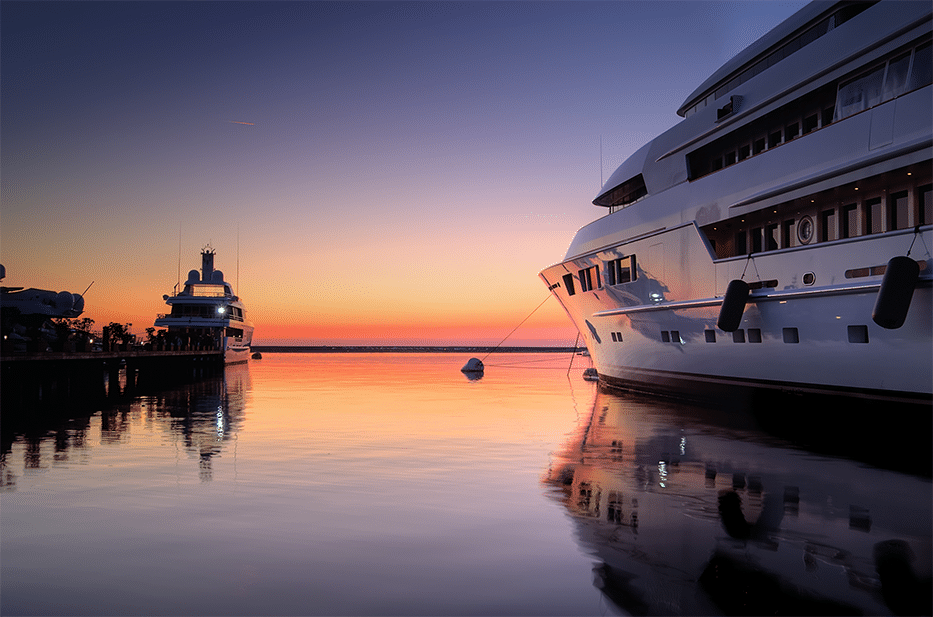
Superyacht at sunset
Indicatively, by 2018, the CISR listed 84 name reservations, eight registered vessels under construction, and 151 new-build yachts, nine of which will be certified under Britain’s Red Ensign “Passenger Yacht Code,” comprising detailed construction specifications.
Red Ensign is an amalgam of 13 British Shipping Registers, including British Overseas Territories and Crown Dependencies. It derives its name from the “Red Duster” flag flown by British civil merchant ships.
The group maintains maritime safety and marine-environment protections across Britain’s 1,300-ship fleet, the ninth-largest in the world in 2018.
In its 2020/2021 listings, the International Chamber of Shipping names five Red Ensign members – Bermuda, the Cayman Islands, Gibraltar, Isle of Man, and the United Kingdom – as performing to “exceptionally high standards,” including Port State Control and ratification of maritime conventions.
The five also rank high on the Tokyo MoU and have US Coast Guard QUALSHIP 21 status.
Since 2016, Red Ensign has occupied the top of the Paris MoU compliance “Whitelist” – led by the Cayman Islands, the Isle of Man, and the UK itself.
The advantages of a Cayman flag include:
- A solid political, legal, fiscal, and social environment in a stable parliamentary democracy since 1831
- A solid maritime heritage with a 118-year-old register;
- An efficient, tax-neutral, international-finance jurisdiction, offering a broad range of first-tier financial and business services;
- Global reach through offices in 15 countries and 19 locations
- Comprehensive maritime legislation based on English Common Law and the British judicial system allows ownership flexibility, discharge of mortgages, change, and protection for mortgagees and financiers.
- Cayman Islands registration is also permitted for yachts commercially chartering in the Mediterranean, Europe, Atlantic and Pacific oceans, and the West Indies.
- As a British Overseas Territory, Cayman falls under United Kingdom oversight, the key to updated yachting codes, including the Red Ensign Group’s “Passenger Yacht Code.” The CISR is legally independent of the UK Register.
- Your ship will sail as a member of the Red Ensign Group, entitled to British diplomatic support, including Royal Navy protection. Also, the CISR provides access to the UK Maritime and Coastguard Agency
- The CISR’s governing body, the Maritime Authority, is a statutory part of the Cayman Islands government, offering a network of surveyors, auditors, and registrars, boasting a shared corporate philosophy and long-term relationships.
- A wide range of ownership structures — individual, joint, corporate, and shipping entity;
- A wide range of registration options — full, interim, provisional, under construction and demise (bareboat) charter;
- Yacht registration and certificates recognized worldwide;
- More than 70 countries qualify to own Cayman-flagged vessels. Citizens do not need to establish a Cayman company to own a vessel, although a company-owned structure avoids liability issues;
- Cayman is part of an International Shipowners’ Advisory Council and a national Maritime Sector Consultative Committee of leading maritime service providers with IMO participation.
- Low registration and maintenance fees and no sales or corporate tax make Cayman a model of tax efficiency and management.

